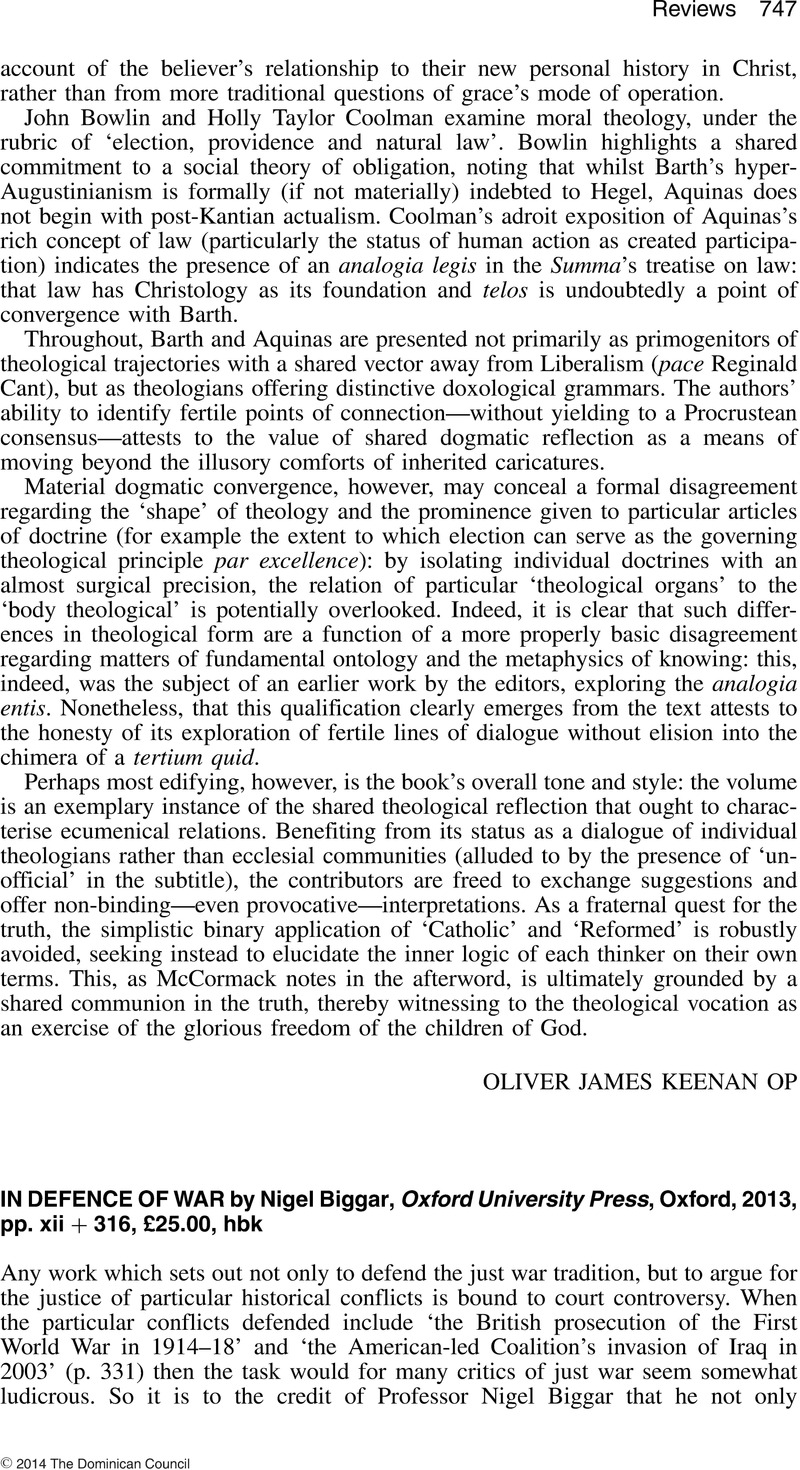No CrossRef data available.
Article contents
In Defence of War by Nigel Biggar, Oxford University Press, Oxford, 2013, pp. xii + 316, £25.00, hbk
Review products
In Defence of War by Nigel Biggar, Oxford University Press, Oxford, 2013, pp. xii + 316, £25.00, hbk
Published online by Cambridge University Press: 01 January 2024
Abstract
An abstract is not available for this content so a preview has been provided. Please use the Get access link above for information on how to access this content.

- Type
- Reviews
- Information
- Copyright
- Copyright © 2014 The Dominican Council




